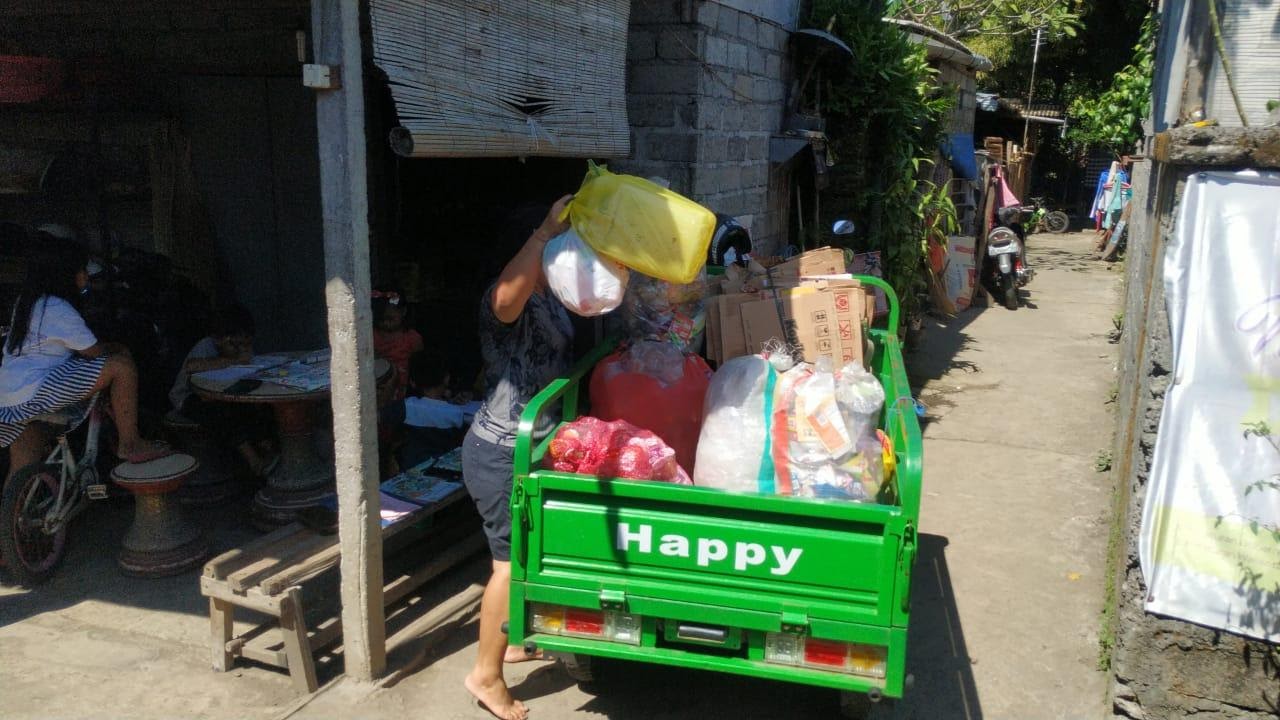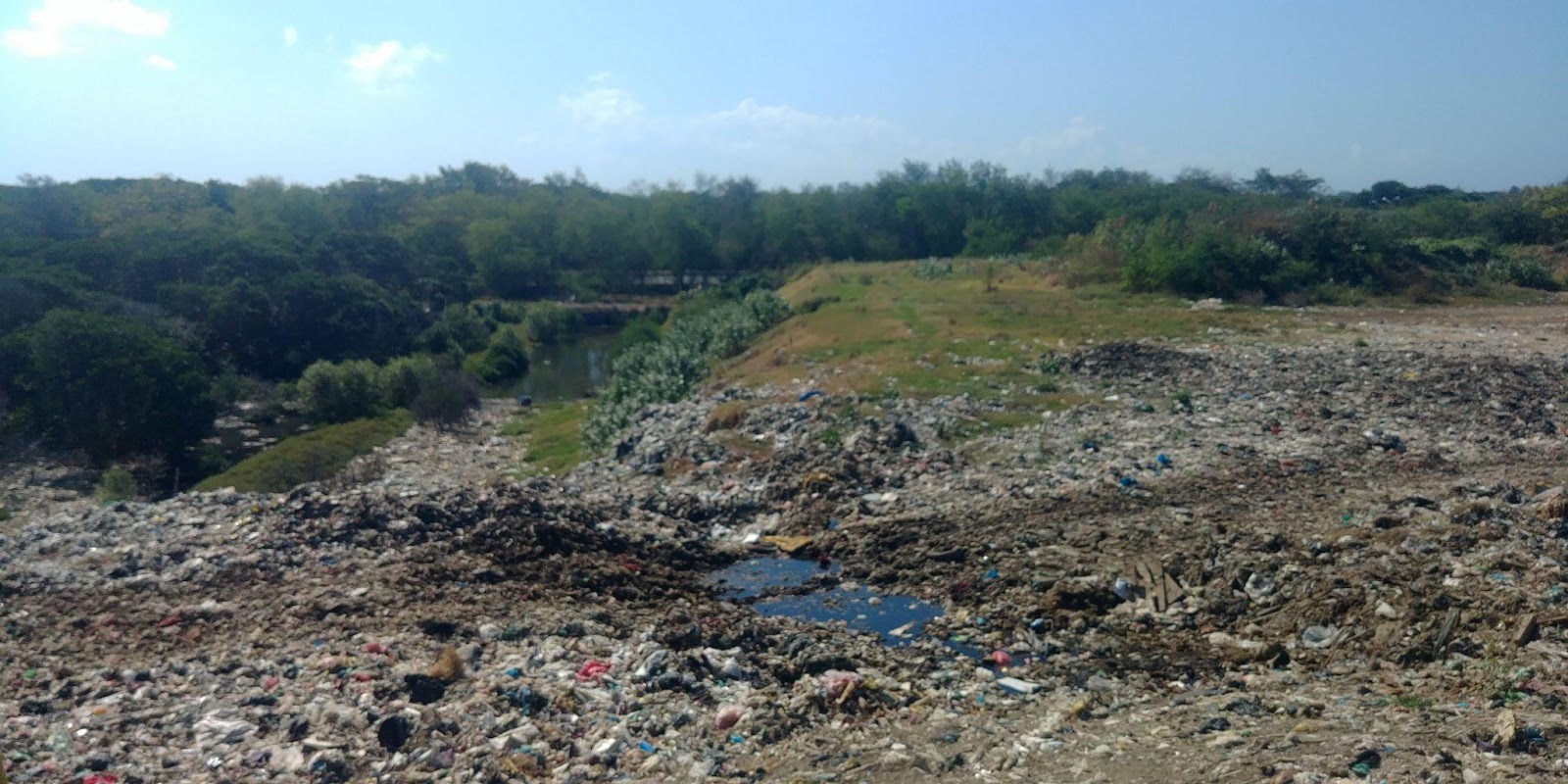PSEL Doesn’t Solve Garbage Problems in Bali
by Zero Waste Indonesia AllianceJune 20, 2021 in Press Release Reading Time: 5min read 00SHARE79VIEWSShare on FacebookShare on Twitter
Denpasar, 20 June 2021 – The Zero Waste Indonesia Alliance (AZWI), BaleBengong, PPLH Bali and the Nexus3 Foundation held a series of media briefing activities related to the problems of the development of Electrical Energy Waste Management (PSEL) in Bali Province and a media visit to Sari Dewi Village to see firsthand implementation of the Zero Waste Cities program. This activity presented three speakers, namely Yuyun Ismawati (Nexus3 Foundation), IB Mandhara Brasika (Griya Luhu) and Catur Yudha Haryani (PPLH Bali).
The province of Bali is one of the PSEL construction sites out of 12 selected cities in Indonesia. The PSEL which will be built in Bali Province is located in the Suwung TPA with a capacity of 1,000 tons of waste per day which will be burned using thermal technology. In several meetings held, current developments are still in preparation for market sounding in preparation for the auction and release of the Andal Train.
The Province of Bali is included in the Instructions for the construction of Waste Power Plants (PLTSa) in 12 Indonesian Cities through Presidential Regulation no. 35 Year 2018 . This Presidential Regulation actually hinders the progress of waste management in Indonesia because it makes city and district governments careless in minimizing, reducing, sorting and increasing waste transportation in their areas according to the mandate of the Waste Management Law no. 18 of 2008. Furthermore, almost all municipal-district waste landfills in Indonesia are still operated in the form of open dumping, not Controlled Landfill or Sanitary Landfill.
The waste management system in Bali Province is currently still using the collect-transport-disposal system. This system only solves the downstream waste problem, by relying on the facilities and infrastructure of the Final Disposal Site (TPA) and the dream of building PSEL facilities.
“Since 2003, Bali has tried thermal technology to process waste at Suwung TPA but failed. The Bali provincial government should convey to the President the lessons learned from the 2004-2016 WTE failure so that it does not happen again. The community cannot wait another 20 years for waste management in the TPA with ‘advanced technology’. With the same cost, we can actually achieve waste sorting and composting at the source or in the area, increasing the percentage of waste transportation to 80%, and operating the TPA with Sanitary Landfill technology for 15 years,” said Yuyun Ismawati, Nexus3 Senior Advisor.
“One thing that the bearers/supporters of WTE/PSEL always ignore, is the B3 waste generated from the burning of waste using thermal technology. In every city that has PSEL, there must be a special TPA for B3 waste. If there is none, it must be transported to another city or to Java Island with special costs and transportation for B3 waste. Currently, dioxins have entered the lowest level of the food chain, namely chicken eggs, in high concentrations, which are harmful to health,” said Yuyun.
In the Waste Management Law no. 18 of 2008 Article 29 paragraph 1 point (g) states that ‘Everyone is prohibited from burning waste that does not comply with the technical requirements for waste management’. This means that the composition of the waste and the method of burning it must comply with technical requirements. Waste in Indonesia does not meet the technical requirements because the average heating value is between 2,000-6,000 kJ/kg lower than the lowest heating value (LHV) standard of 10,000 kJ/kg.

When viewed from various aspects (technology, health, social, environmental, and economic), the development and operation of PSEL is clearly not feasible and unsustainable. Especially in the financial aspect, the construction of PSEL has the potential to be detrimental to the state and local governments because the costs used for the construction and operation of PSEL are very high compared to handling in a sanitary landfill . Financing the construction and operation of the PLTSa will use APBN/APBD funds whose funds are limited, so that the Government also relies on foreign investment from various countries and financial institutions.
“PSEL will be a way back in waste management in Bali. The Governor’s efforts, which are appreciated nationally and internationally, will be in vain. The Governor is very extraordinary for his commitment to produce Governor Regulation No. 97 of 2018 and Governor Regulation No. 47 of 2019 which prioritizes waste management at the source. However, with PSEL, the community will stop sorting, traditional villages and service villages will fail to manage waste at the source because the waste will be brought to PSEL. Of course, this will tarnish the good name of the Governor and the Provincial Government of Bali and undermine public confidence,” said IB Mandhara Brasika, founder of Griya Luhu.
Based on a review of the PSEL project by the Corruption Eradication Commission, this project burdens local governments because the cost of Waste Management Services (BLPS) sourced from the APBD is only based on volume per tonne managed. This fee does not include the cost of collection, transportation, and final processing.
This project has the potential to harm the regional treasury, especially if the local government is unable to supply waste to the PSEL facility, then investors will impose a fine on the local government. It should be remembered that the cooperation contract for the construction and operation of the PSEL facility will bind the Regional Government for the next 20-30 years.
“In my opinion, legally, PSEL cannot be built in Bali because the Governor has issued Pergub No. 47 of 2019 concerning source-based waste management. If PSEL continues to be built, this will injure and contradict the policy of the Governor of Bali,” said Catur Yudha Hariani, Director of PPLH Bali.

“Waste is the responsibility of every individual. The most urgent action to be taken is the reduction of new products so that there is no new waste. This has been stated in Pergub No. 97 of 2018 concerning the reduction of single-use plastic. If there is garbage, immediately sort it out and recycle it. That way we don’t need to use an incinerator because it will cause economic, health and environmental losses and become a monument. The cost of building a PSEL is very expensive. It is better to use it for public education costs and to facilitate 70% of villages that do not yet have a TPST,” added Catur.
One example of the success of the zero waste cities program has been carried out by the community of women in Gang Sari Dewi, Banjar Tegeh Sari, North Denpasar. Komang Ariani from the Sari Dewi community representative said that before the zero waste cities program, he swept 3 times a day because he couldn’t see in front of the food packaging garbage scattered about. “I pay for garbage collection services every month so I don’t process waste at home. The garbage is mixed together and then transported by the garbage collector,” said Komang Ariani.
“After the zero waste cities program, my environment is clean. In the past, children used to eat snacks and throw garbage anywhere. Now it’s easier to sweep and I sort out the inorganic waste and put it in a tube. It’s also nice to increase knowledge, not only knowing kitchen matters. Sorting waste is not difficult, because there are already containers for each type of waste, all you have to do is practice it. My children already understand and understand, there are no barriers to sorting, “continued Komang Ariani.
This series of activities is expected to serve as a message to increase information to the public as well as in advocating a review of PSEL development and thermal technology as waste destruction in Bali Province. And also promotes a Zero Waste ( Zero Waste ) as a sustainable waste management solution in Bali Province.
Contact person
Chess Yudha Haryani, 082337380632, caturpplhbali@gmail.com
IB Mandhara Brasika, 0817554757 , mandharaabrasika@gmail.com
Yuyun Ismawati, yuyun@nexus3foundation.org
Nindhita Proboretno, 081808322339, nindhita@nexus3foundation.org
source: https://aliansizerowaste.id/2021/06/20/psel-tak-selesaikan-masalah-sampah-di-bali/

